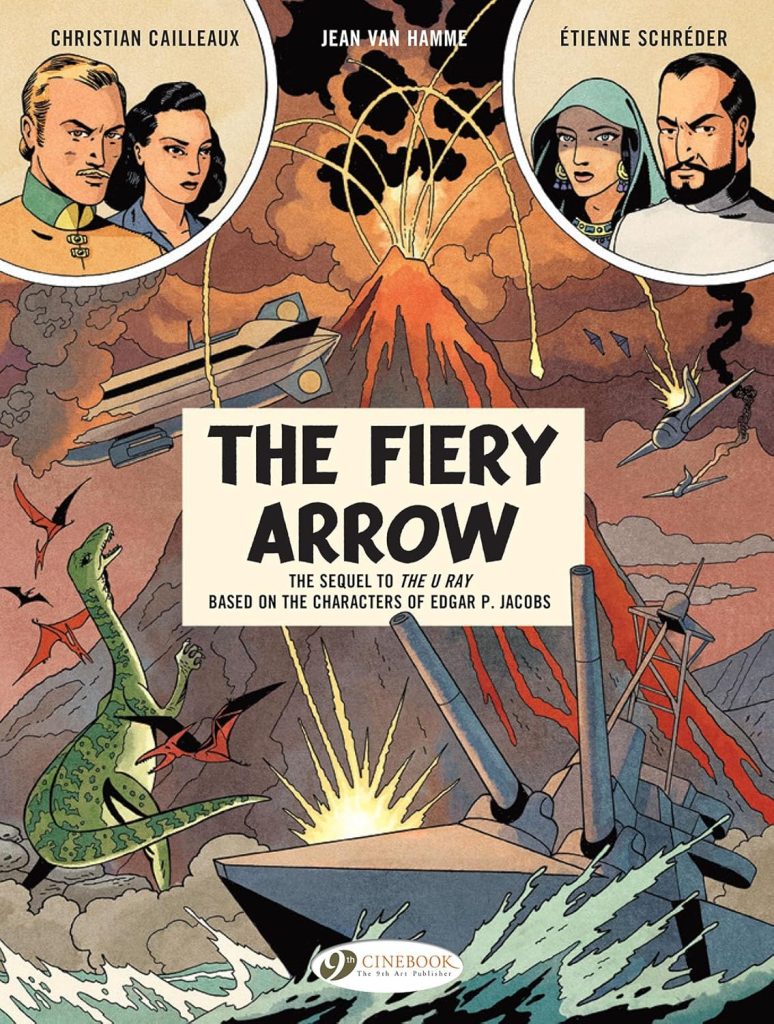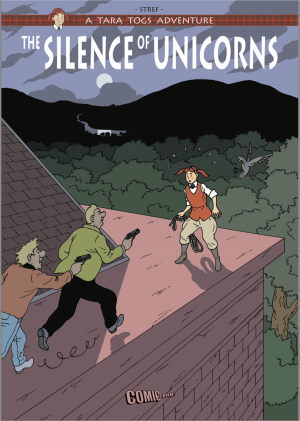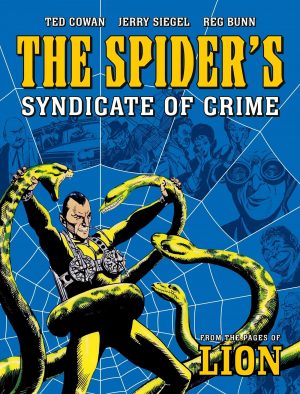Review by Woodrow Phoenix
Edgar P. Jacobs is best known to European comics readers for The Adventures of Blake & Mortimer, but his first serialised comic strip was Le Rayon U (The U Ray), a Flash Gordon-style series published weekly in 1942 and eventually issued in a revised, collected edition in 1974. It’s a less accomplished work, simplistic, generic and very dated now but the art is striking and it has its admirers. Among them is Jean Van Hamme, one of Belgium’s most popular comics writers with series such as Thorgal, Largo Winch, XIII and Lady S. among his successes. He’s also a lifelong fan of Jacobs, paying tribute to his childhood inspiration in three books extending the world of Blake & Mortimer in new stories: The Francis Blake Affair; The Strange Encounter; and the two-part The Curse of the 30 Pieces of Silver. It was Van Hamme’s idea to revisit the world of The U Ray and write a sequel in the same spirit as the original.
La Flèche Ardente (The Fiery Arrow), continues directly from the end of the previous book. Professor Marduk now has a sample of Uradium with which to test his U Ray. But Babylos, the Emperor of Austradia doesn’t intend to let his hated rivals in Norlandia gain the upper hand, dispatching his army to the Black Isles to seize all the Uradium ore for Austradia. And if the indigenous people of Prince Nazca won’t reveal the location of the precious metal deposit, the army will convince them to co-operate… by force.
Artists Christian Cailleaux and Etienne Schréder have previous experience in emulating Jacobs’ style with The Call of the Moloch, and they do an excellent job here of recreating the atmosphere of The U Ray with great fidelity, although they don’t use as much black ink. Combined with a script from Van Hamme that fleshes out the characters with (comparatively) deeper emotional inner lives and more human motivations, The Fiery Arrow actually improves on Jacobs without losing any of the pulpy spirit that animates the original strip. It’s melodramatic, romantic high adventure but played straight, and it’s that sincerity of purpose that makes this a treat for fans of Jacobs.





